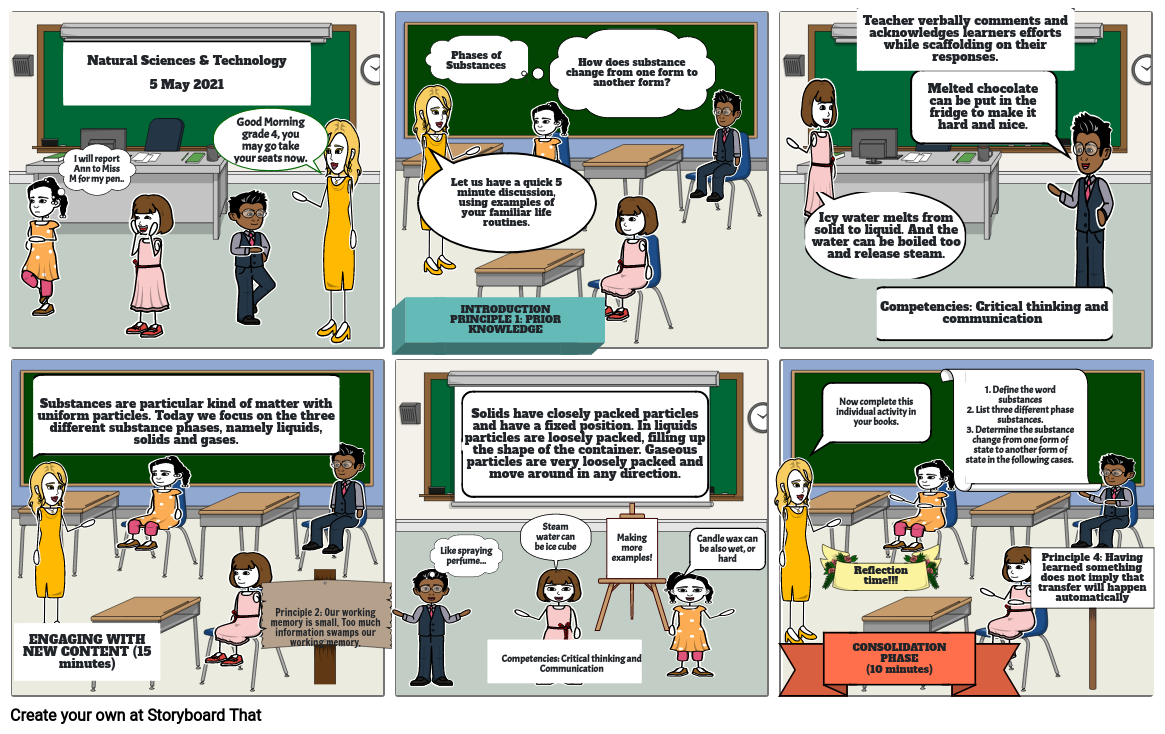Grade 4 Natural Sciences & Tech Storyboard Lesson

Siužetinės Linijos Tekstas
- Natural Sciences & Technology5 May 2021
- I will report Ann to Miss M for my pen..
- Good Morning grade 4, you may go take your seats now.
- INTRODUCTIONPRINCIPLE 1: PRIOR KNOWLEDGE
- Let us have a quick 5 minute discussion, using examples of your familiar life routines.
- Phases of Substances
- How does substance change from one form to another form?
- Icy water melts from solid to liquid. And the water can be boiled too and release steam.
- Teacher verbally comments and acknowledges learners efforts while scaffolding on their responses.
- Competencies: Critical thinking and communication
- Melted chocolate can be put in the fridge to make it hard and nice.
- ENGAGING WITH NEW CONTENT (15 minutes)
- Substances are particular kind of matter with uniform particles. Today we focus on the three different substance phases, namely liquids, solids and gases.
- Principle 2: Our working memory is small. Too much information swamps our working memory.
- Like spraying perfume...
- Solids have closely packed particles and have a fixed position. In liquids particles are loosely packed, filling up the shape of the container. Gaseous particles are very loosely packed and move around in any direction.
- Competencies: Critical thinking and Communication
- Steam water can be ice cube
- Making more examples!
- Candle wax can be also wet, or hard
- CONSOLIDATION PHASE(10 minutes)
- Now complete this individual activity in your books.
- Reflection time!!!
- 1. Define the word substances2. List three different phase substances. 3. Determine the substance change from one form of state to another form of state in the following cases.
- Principle 4: Having learned something does not imply that transfer will happen automatically
Sukurta daugiau nei 30 milijonų siužetinių lentelių

